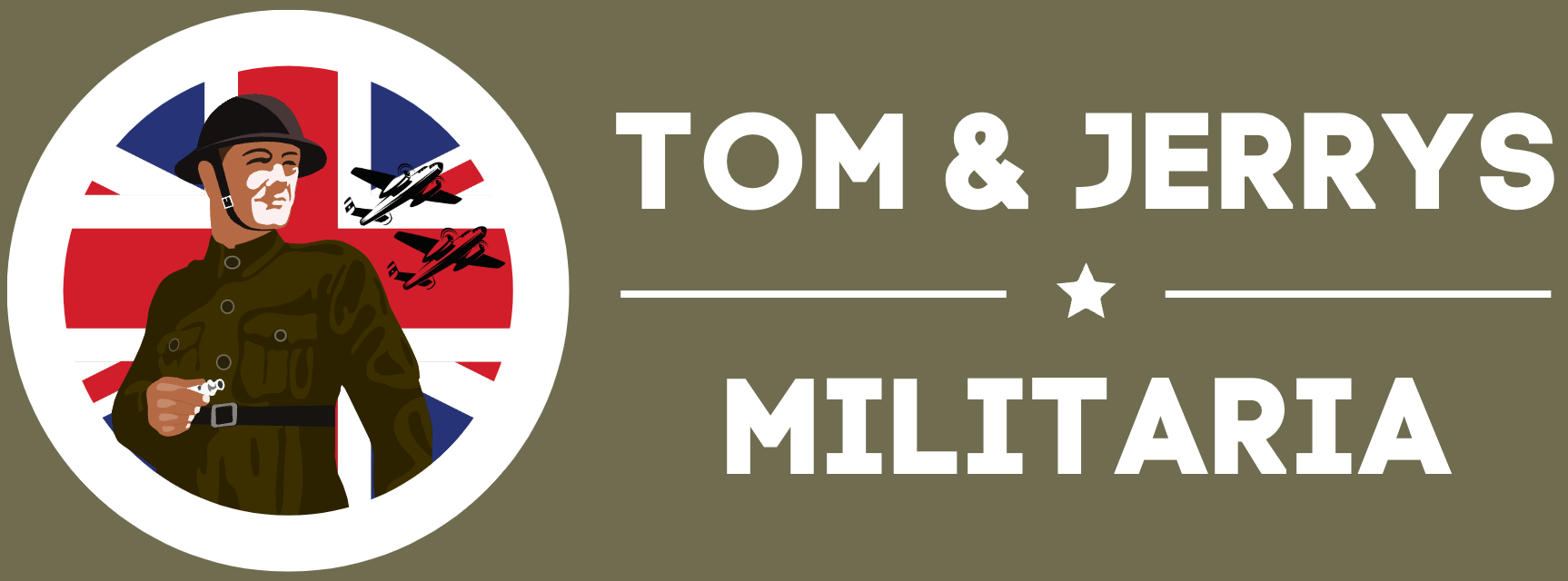Tommies Militaria and Collectables
WW1 German Trench Art Tobacco Tin
WW1 German Trench Art Tobacco Tin
Couldn't load pickup availability

Product Condition
Product Condition
Shipping & Returns
Shipping & Returns
Shipping
All orders are subject to a delivery, packing & handling charge. The correct charges will be automatically calculated via our Shopping basket ordering system and are based on the total weight of your order, your location, and our normal method of despatch. Please be aware that we reserve the right to alter any miscalculation, plus or minus, and you will be notified prior to shipping of any changes.
When shipping items, we use the UK Royal Mail, EVRI, DPD and Parcel Force in the event of a parcel arriving with contents damaged ALL the packaging must be kept for inspection by the delivering shipping contractor whoever that contractor is, failure to adhere to this WILL result in ANY claim being denied.
We do ship internationally and will always use a Tracked and Signed for service. We strive to use the best and most economical shipping services available
All shipping, insurance and import charges will be borne by the customer.
All lots are shipped at the buyers risk no compensation will be offered for items lost or broken in transit. Alternatively you can pay for your own courier.
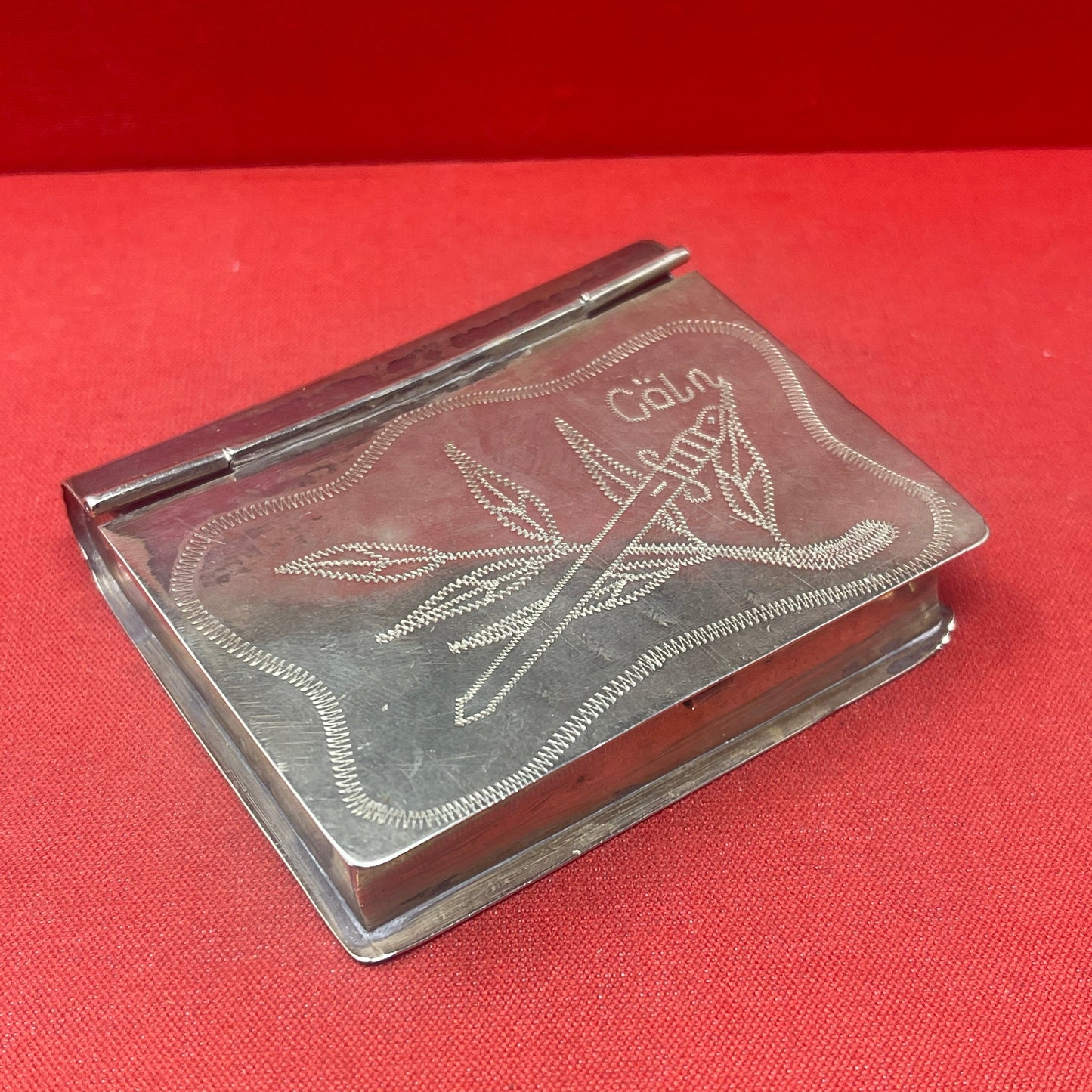
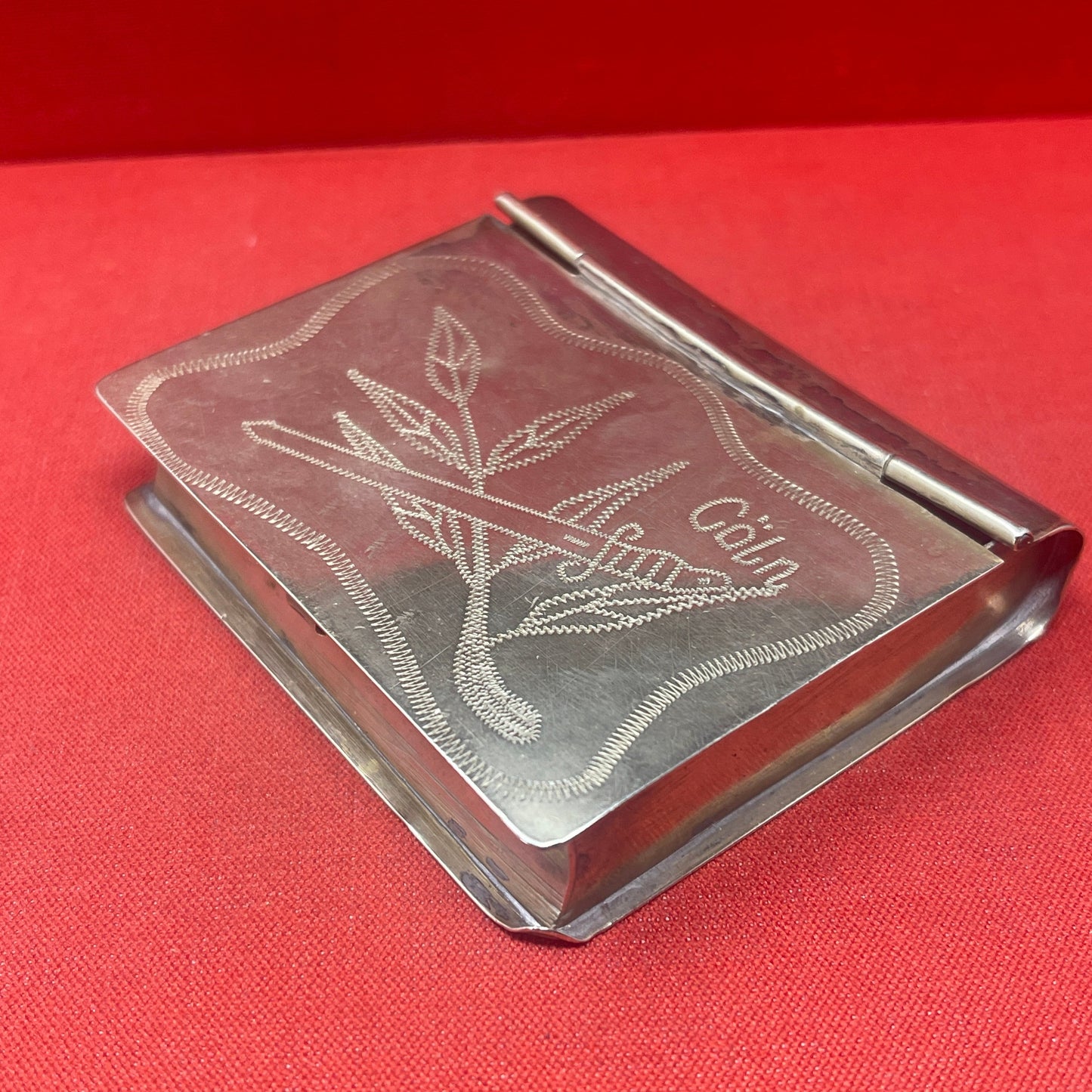
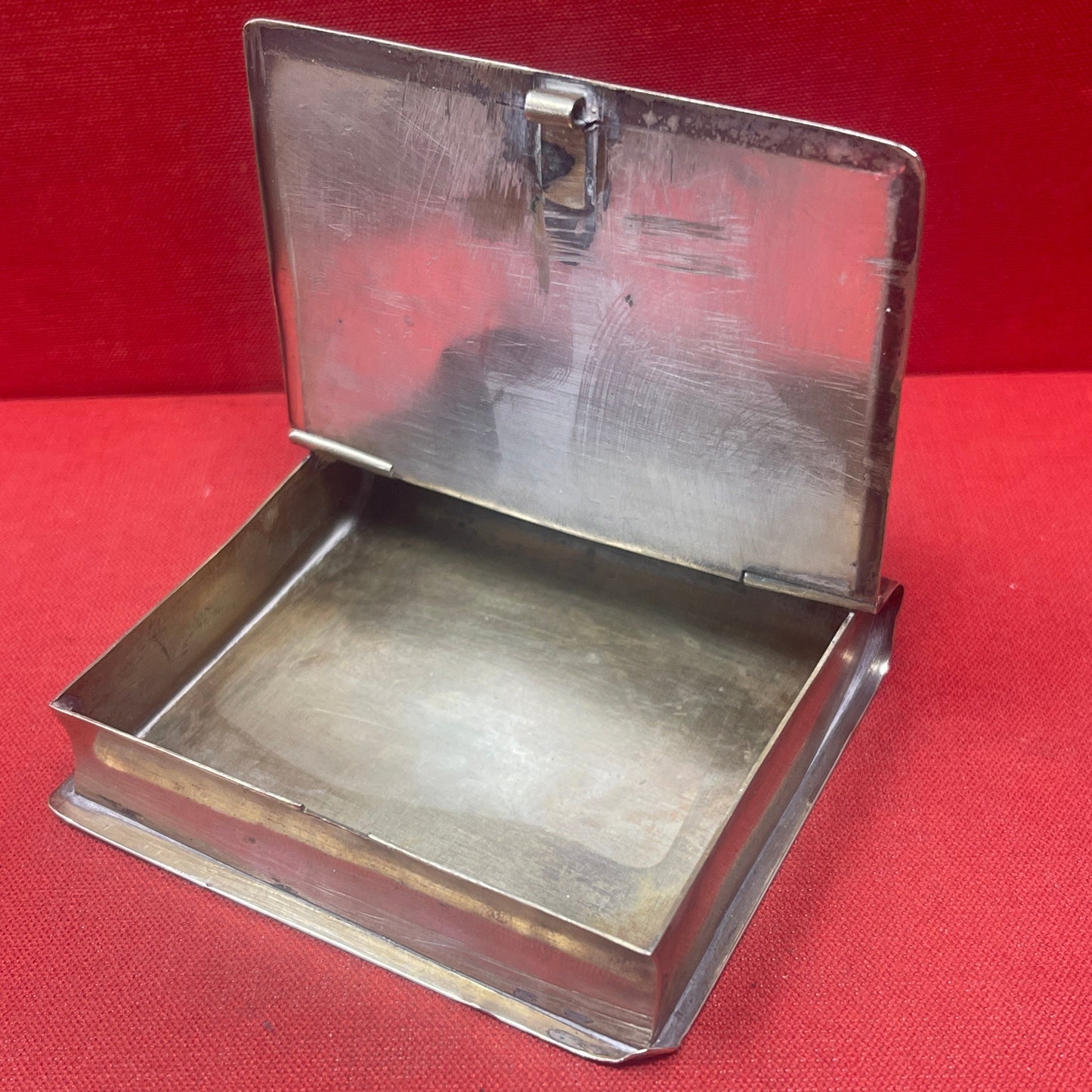
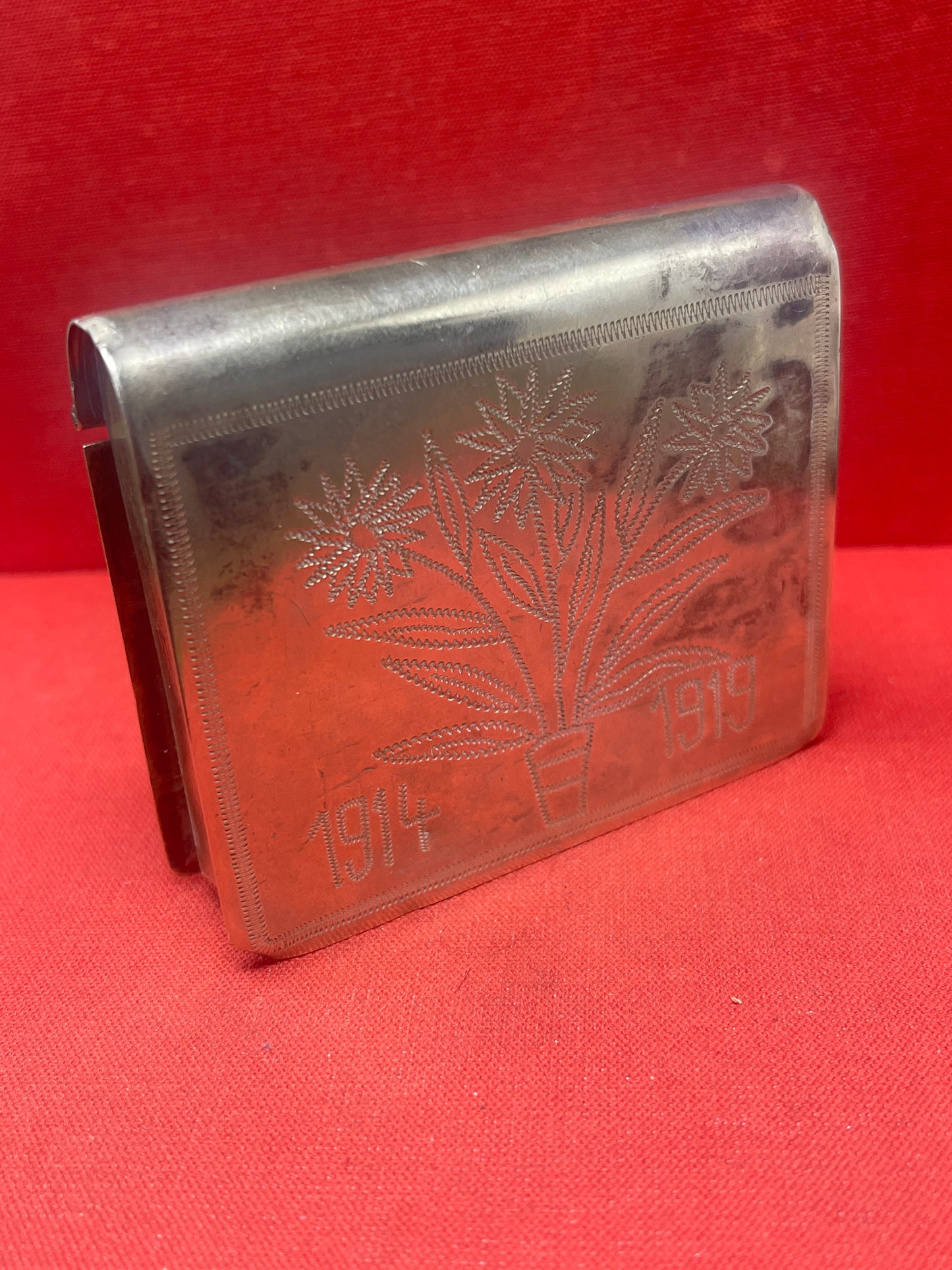
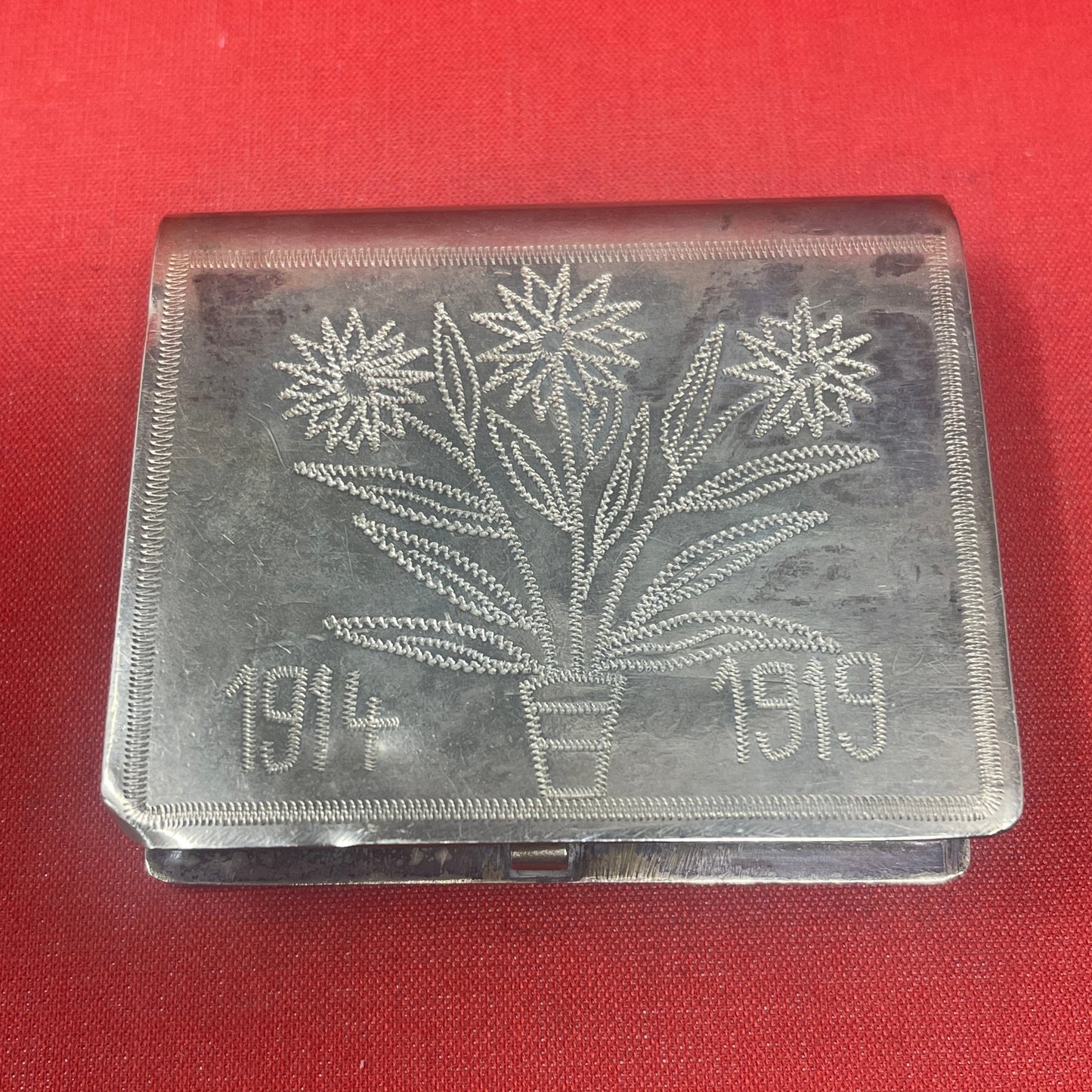
Product Description
This is a really interesting piece of Trench art from World War 1.
On the front of the tin is a German bayonet lying across a branch. To the right of the bayonet is the word Cöln. On the other side are flowers
Cöln was Kolberg-Class Light Cruiser
Cöln was assigned to patrols off the island of Heligoland At the outbreak of World War I in early August 1914, as the flagship of Rear Admiral Leberecht Maass. At the Battle of Heligoland Bight on 28 August 1914, the German patrol forces were attacked by superior British forces, including five battlecruisers and several light cruisers. Cöln was initially stationed in support of the forces on the patrol line. She attempted to reinforce the beleaguered German forces and encountered Vice Admiral Beatty's battlecruisers. She was hit several times by the battlecruisers' large-caliber guns but managed to escape in the haze. She inadvertently turned back toward them, however, and was quickly disabled when the battle resumed. The crew abandoned Cöln, but German vessels did not search the area for three days, and only one man survived.
This is a really nice piece and has been constructed to a high standard
